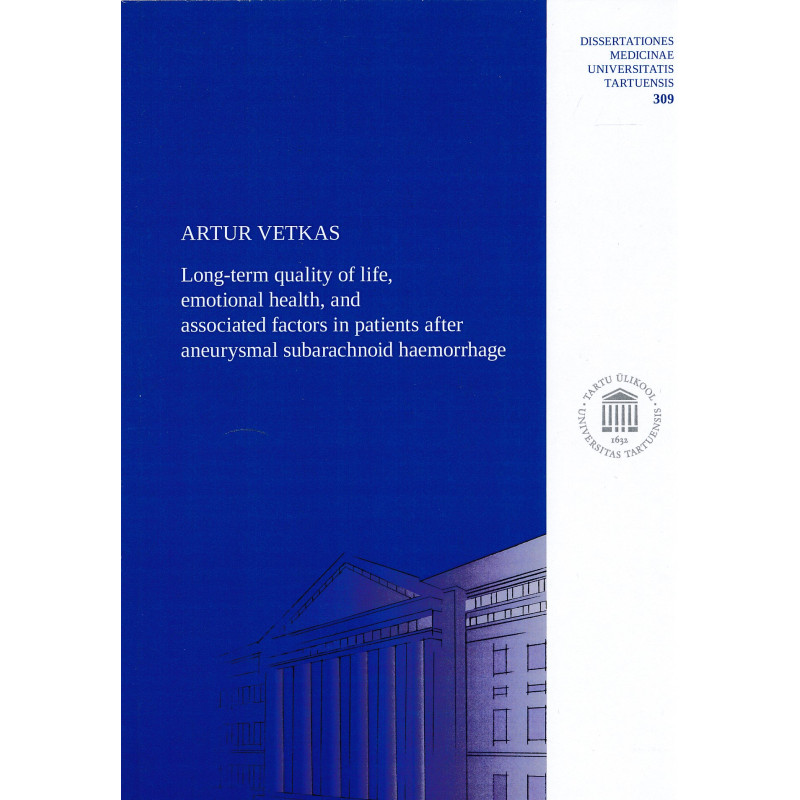



Tartu : University of Tartu Press, 2020
127 p. : ill.
ISBN: 9789949034970
Dissertationes medicinae Universitatis Tartuensis, 1024-395X ; 309
Paperback new dissertation.
Aneurysmal subarachnoid haemorrhage (aSAH) is an acute neurosurgical disease that is associated with devastating long-term morbidity and socioeconomic burden. aSAH accounts for 5% of all strokes. The incidence of aSAH is around 7.9 per 100.000 patient years. The mean age of aSAH incidence is 55, and survivors have a good life expectancy. Despite recent improvements in the management of aSAH, psychosocial outcomes are still unsatisfactory. More than half of patients report a persistent reduction in their quality of life (QoL). Many patients experience mental health disturbances such as depression, anxiety, and fatigue. Despite the potential benefit associated with timely management of QoL and mental disorders after aSAH, these issues often remain unrecognized and undertreated. Biomarkers are needed to predict, diagnose, and potentially treat the long-term consequences of aSAH. With this long-term retrospective study of aSAH survivors, we aimed to measure survivors’ QoL, describe various emotional disorders that aSAH patients experience, and analyse the associations between emotional disorders and QoL. We also explored the role of the corticotrophin-releasing hormone receptor 1 (CRHR1) genotype as a possible biomarker for emotional maladjustment after aSAH. A strong long-term reduction in the physical, mental, and social domains of QoL occurred in our cohort of aSAH patients in comparison with the general population. There was a high prevalence of emotional disorders, fatigue, and insomnia amongst patients. Fatigue was the most common disorder, which was affected both by the mental and physical state of the patients. One third of the patients scored significantly for depression and anxiety, which coexisted frequently. A substantial number of patients reported frequent thoughts of suicide. Emotional disorders were significantly associated with impaired QoL. Emotional disorders explained more than half of the variance in the mental domain and almost one third of the variance in the physical domain of QoL. Fatigue was significantly associated with all QoL scale results. Depression was significantly associated with all scores in the mental domain of QoL. Carriers of the minor genotype of CRHR1 had significantly better scores in the mental domain of QoL. The CRHR1 minor genotype was associated with a lower risk of fatigue and depression after aSAH.